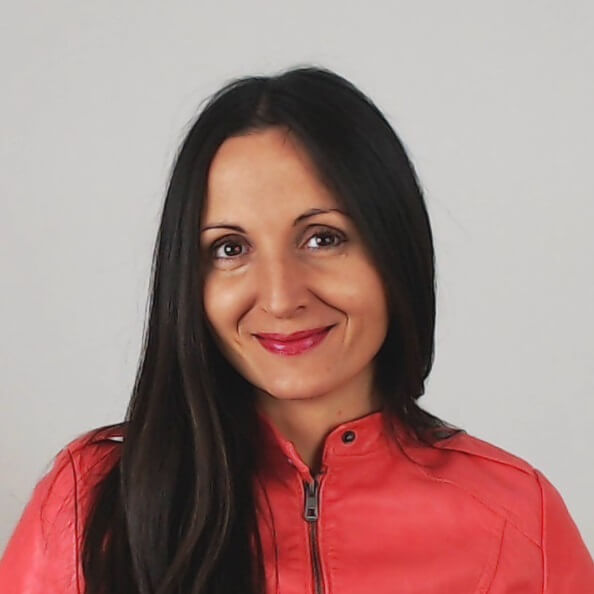Speak Serbian like a real Serb!
12 ultimate Serbian phrases no textbook will teach you
If you’re one of the people who learn Serbian because they want to speak Serbian to their friends, you must learn colloquial Serbian too. In this blog you’ll learn 12 Serbian phrases you must learn if you want to speak Serbian genuinely like a real Serb. You will also learn some foreign words that the Serbian language adopted long time ago, and are now very Serbian way of speaking.
If you want to speak Serbian like a real Serb, you must know that you can’t rely on textbooks. Why? Because they often teach you phrases that are never used in real life. And they don’t teach you what is actually used everyday. Read on to learn useful phrases and words that will make you sound like a real Serb.
Among the first phrases that you’ve learned when you started learning Serbian were:
-
- Kako se zoveš?
- Ja se zovem Magdalena.
- Drago mi je.
- I meni.
As I explained in this post about introductions, that’s not what we do in real life. Once you start hanging out with the Serbs, you’ll probably notice that we actually don’t use these phrases, almost at all!
A Serb will just stick out a hand saying his name. The other Serb will than shake his hand and simply say his name in return. They might just smile.
If they continue and say „Drago mi je. – I meni“, they’re being extra polite or very happy for meeting each other.
Read on to learn a few expressions that we use daily in Serbia and yet that I’ve never seen in a textbook for foreigners.
„De si!“
We do say „Zdravo“ and „Ćao“ informally speaking, but we will regularly say just „De si“, especially to a dear friend whom we haven’t seen for a while.
„De si“ or „Di si ti“ or „Ej, de si“ are all variations of „Gde si (ti)“ meaning „Where are you“.
Saying this, we are not actually asking the person where have they been, we’re just saying: „Hi, it’s good to see you again.“
„Bre!“
Bre is an ultimate word you must know and learn how to use. It can’t be translated to many other languages, and yet we use it daily. What is it, then? It’s an emphatic word, an intensifier. We can add it to virtually any phrase thus adding an emotional component to it, like: „De si bre ti?“ „Kako si, bre?“
We said that bre doesn’t translate to many other languages, but the Greeks can understand this little word perfectly because they also use a variant of it (βρε or ρε). The Modern Greek Dictionary correlates it to the Turkish word bre or bire. However, etymologysts say that „bre“ has its origin in ancient Greek adjective μωρός (moros, meaning: foolish, stupid). We’re talking about the same word from which the term moron originated. It lost this negative meaning long time ago, though.
„More bre!“
When we want to jokingly show anger or express a mocked threat, we will combine these two words, even though they’re basically the same: as previously explained, „bre“ originated from „more“ (vocative of moros). In the Serbian villages you can also hear the feminine form of this Greek word: mori – used only when addressing to a female.
„Hajde!“
This is an imperative, inviting form meaning „Come on“, „Let’s go“ or „Let’s do something“. Hajde for you singular, hajdemo for the first person plural and hajdete for the second person plural. That’s the „official“ form, but you will frequently hear it without the inicial h (ajde, ajdemo, ajdete), or (h)ajmo, (h)ajte, or simply aj. You might hear older population saying even hajdemote or ajdemote.
This word appears in a similar form in the Greek language as well (άντε). We got it from the Turkish word haydi or hadi. Obviously, it is widespread on the Balkans and you should definitely start using it.
„Marš!“
This little word, obviously borrowed from French „marche“ (march, walk away, in imperative mood) is used as a non-vulgar curseword. You can use it to say „Go away“, „leave me alone“, or „stop kidding me“ in a pretty harsh and rough way. It is often combined with other cute little words like „Marš bre“ or „More marš“ or even „More marš bre“, or with some serious cursewords. We often even make it even shorter, depriving it of vowels: mrš! Bear in mind that it is never polite but it is used jokingly among close friends.
„E znaš?“
Your textbook probably taught you how to use „da li“ or only the particle „li“ to form a question. In the first case, you will just put the interrogative words „da li“ in front of the sentence, and you will get a yes-or-no answer: „Da li voliš da čitaš?“ – „Da“ or „Ne.“ In the second case you will start with the verb and add the interrogative particle „li“ to it: „Voliš li da čitaš?“ – „Da“ or „Ne“. These are the most formal ways of asking questions. When talking informally however, we will frequently say just jel (je l’) or el or even e instead of „da li“, and that’s how we ask a question: „El ideš?“ One more word correlates to this: many less educated people will frequently use jer (which actually means ’because of’) instead of jel to form a question. Beware, this is not correct, but don’t be confused when you hear it around!
„Si dobro? Ćeš vode?“
My dear students, I know that the clitics and the word order have been a pest, but that’s how our language works. Now, the information you’re about to read can be considered as an upgrade of your jump-around-with-the-clitics skills. Yes, the rule says that the little words such as short forms of the auxiliary verb biti (to be) are dependent and always tend to stick to the second position in a clause. However, if you consider the way we actually speak, you will notice that we frequently start our colloquial questions with the clitics themselves: „Si dobro?“ (formally: „Jesi li dobro / Da li si dobro?“, Are you all right?), „Si učila?“ (formally: „Jesi li učila? / Da li si učila?“, Did you study?). With the verb biti, it happens only in the questions, though. But this applies to another auxiliary verb, hteti (to will), and you will hear: „Ćeš vode?“ (formally: „Hoćeš li vode?“, Do you want some water). In the Central and Southern Serbia, even the future tense will start the sentence with the clitic: „Ću da dođem“ (formally: „Doći ću“, I will come), „Će idemo“ (formally: „Ići ćemo“, We will go).
„Si mi dobar?“
I’m sure you’ve learned the difference between adverbs and adjectives. You know that adverbs describe verbs, and that „Moj brat je dobro“ means „My brother is fine“, while adjectives describe nouns and „Moj brat je dobar“ means „My brother is (a) good (man)“. Therefore, the simple question „Kako si?“ (How are you?) should be answered with „Dobro sam“ (I’m fine). If you say „Dobar sam“ (m) or „Dobra sam“ (f), it means „I’m (a) good (person)“ or „well-behaved“. However, once you start hanging out with the Serbs, you will hear them using exactly the adjectives here! „Jesi dobar?“ or „Jesi dobra?“ meaning „How are you, are you fine?“ It’s probably a bit confusing, but that just the way some people like to say it!
„Izvol’te“
You’ve probably learned the imperative forms izvoli for second person singular or izvolite for you plural or you formal. These words are used for offering something (food or drinks, for example), or for inviting someone politely to enter into your home. However, we will frequently use the shortened plural form izvol’te even when addressing to a close friend.
„Šetaj!“
Remember the verbs „šetati se“ (to go for a walk) and „odmarati se“ (to have a rest) and their reflexive pronoun „se“ that compulsively jumps around the sentences, obsessed with the second position? These are reflexive verbs, and our grammar insists on that; yet it seams that the native speakers don’t feel them to be reflexive at all! You’re not doing anything to yourself, nor is something hapening to you, so they are frequently used actively, without the reflexive pronoun. You will often hear your Serbian friends saying šetam or odmaram, without „se“. If you happen to hear „Šetaj“, be sure that you’ve done something wrong, as it is a bit less agressive expression than „marš“, but with the same meaning: „Go away!“
Have you noticed other discrepancies between your textbook and the way we actually speak? I’ve listed only a few, and I dare you to find more! Make your own list of the phrases that will help you speak Serbian like a Serb.
5 Non-Serbian words that will help you speak Serbian like a real Serb
I know, it sounds crazy, right? How can you possibly use NON-Serbian words to sound more Serbian?
Well, some words have superpowers. 🙂
In this video you will learn about 5 special words. We use them every single day in colloquial Serbian speech. And they are so deeply rooted in the Serbian language that most Serbs consider them Serbian.
Today I want to teach you some very important and widespread interesting little words. Now, why are they important and widespread, and why are they interesting?
Because, first, they are emotional words, and second, they are NOT Serbian even though I bet 80 or 90 percent of the Serbs would swear that these words are Serbian. But they’re not!
I’m going to teach you how to use these words the Serbian way, and I’ll explain where they came form.
BRE!
Bre is really an important word you must know and probably you should even learn how to use it.
We can’t translate it to many other languages, probably only in Greek. So, what is it? It’s an emphatic word, an intensifier. It’s used also for to addressing to people in an intense way, like we’re calling for attention.
We can add it to virtually any word or phrase and in that way we’re adding an emotional component to any statement, like:
„De si bre ti?“ „Slušaj bre!“ „Čekaj bre!“ „Šta to bre radiš?“
(Where are you?) (Listen!) (Wait!) (What are you doing?)
So you can add it anywhere, to any statement or word.
The thing with this little word is that many Serbs identify their national feelings with it. And that’s why you’ll see different Serbian brands containing this word.
Well, guess what, the word “bre” is not even Serbian. The Greeks can understand it perfectly because they also use it (they say βρε or ρε). Etymologysts say that „bre“ originates from the ancient Greek adjective μωρός (moros, meaning: foolish, stupid). We’re talking about the same word from which the term moron originated.
Nowadays, it doesn’t have such a negative meaning. In modern Greek it simply means “a baby”.
So, it’s not a bad word, it’s just a way of saying, to express yourself.
MORE!
Here we come to the next word, more, which is actually the same. You know, more is the vocative form of this same adjective moros and that vocative form “more” gave us “bre”.
What’s interesting is that in Serbia we combine these two words, even though they’re the same. We don’t feel tha they’re the same, so we can say: More bre!
And these words are very emotional. We can use them to jokingly show anger or express a threat, or a mocked threat. We can use it with irony or seriously.
And I must say that bre is really widespread in Serbia, while more is felt I think nowadays even a little bit obsolate, a bit old. You would associate it more to an older person from a village using it.
And villages (in central and south Serbia) are also the place where you can hear the Greek femenine form of this word: mori (used only when addressing to a female). Yes, you can also use this word in Serbia. But it’s not very widespread nowadays, it’s somewhat old, as I said.
HAJDE!
The next word is also something that we have in common with the Greeks, but both nations got it from the Turks. It’s a Turkish loan word. And we use this word in Serbia as a verb. In Serbian it’s a defective verb that only has the imperative forms.
As with all other verbs, we have three imperative forms: for you singular, for we, and for you plural. So, that’s why we have these three forms:
Hajde (ti), for you singular,
hajdemo (mi), for the first person plural (we) and
hajdete (vi), for you plural or you formal.
These are, let’s say, the formal forms of this word. We use it to say „Come on“, „Let’s go“ or „Let’s do something“, let’s do anything that the verb that follows proposes. Usually it’s combined with the conjunction “da” and another verb in the present tense, like:
“Hajde da gledamo film” (Let’s watch a movie)
“Hajde da se šetamo” (Let’s go for a walk)
We also have colloquial forms, without the inicial h sound, and we say
ajde, ajdemo, ajdete.
Or we can shorten them even further, and get ajmo, ajte, or hajmo, hajte, or simply ajd or aj.
So, when you hear “aj” or “ajd”, it comes form “hajde”.
And in this short form this word is combined with many other words, like:
“aj zdravo”, “aj dođi”, “aj daj mi to”.
(bye) (come here) (give me that)
It’s an inviting word. And obviously, it is widespread here on the Balkans and you should definitely start using it, if you’re not already.
ALO!
And here we will jump to the English language. We also have a word that originates from the English language that we use like this: Alo! Halo! Obviously, it comes from the English Hallo and Hello. We do use it to answer the phone, but we also use for calling someone to their senses
Alo, čoveče, šta to radiš?
(Hey, man, what are you doing?)
Usually without the h sound, only „alo“.
MARŠ!
And the final word that I’m going to teach you today is obviously borrowed from French: Marš!
It comes from „marcher“, French word for “to march, to walk”, in imperative mood.
How it came to us? Well, it came through the army. First it was used in the Youslavian army as a command: napred marš! (march forward)
Nowasays it’s used as a non-vulgar curseword. It’s a bad word. And we use it to say „go away“, „leave me alone“, or „stop kidding me“. It can be pretty harsh and rough, but we also can use it jokingly and not offensively. Even though it’s never polite, it can be used among friends as a joke.
However, it can also be combined with some serious cursewords, that I’m not going to mention here today, but also with other cute little words on our today’s list, like:
„Marš bre“ or „More marš“ or even „More marš bre“.
And what’s very, very interesting with this word is that we often make it even shorter, depriving it of vowels, and we say: mrš!
Combining the words to speak Serbian like a real Serb
Now, as I said, many of these little words can be combined together, and especially bre, which is a joker word: you can put it enywhere. So we can have:
More bre! Alo bre! Marš bre!
* * *
Good, you’re all set now. You know all the really, really important little emotional words that actually don’t have a specific meaning, but are very very effective in conveying how we feel. And will help you to speak Serbian authentically.
To practice speaking Serbian with the best Serbian teachers on our platform, join our mini groups at Serbonika!
by Magdalena Petrovic Jelic
Founder of Serbonika
Serbian language teacher and entrepreneur, language lover and polyglot, but also a mother and a relentless storyteller. Read more about me.
My mission is to create the best method for learning Serbian. Would you like to learn Serbian with my lessons? Try free.
Serbonika
Najbolja metoda za učenje srpskog jezika
The best method to learn Serbian
The sooner you start learning, the sooner you’ll start talking. Take action now!
Talk about Love in Serbian: 15 Ready-to-use Serbian Love Phrases
If you want to talk about love in Serbian, chances are you got a crush on a Serb. Learn words related to love with their witty etymology, and useful love phrases in Serbian.
Ordering Food in Serbian: Practical Tips to Sound Like a Native
Don’t go to another Serbian restaurant without reading these practical tips about ordering food in Serbian like a native! Avoid “the textbook trap” and stop sounding weird!
Introductions in Serbian: NOT what your book taught you!
Learn how to introduce yourself and to meet others in Serbian language. How to say what’s your name and to ask others about their names.



